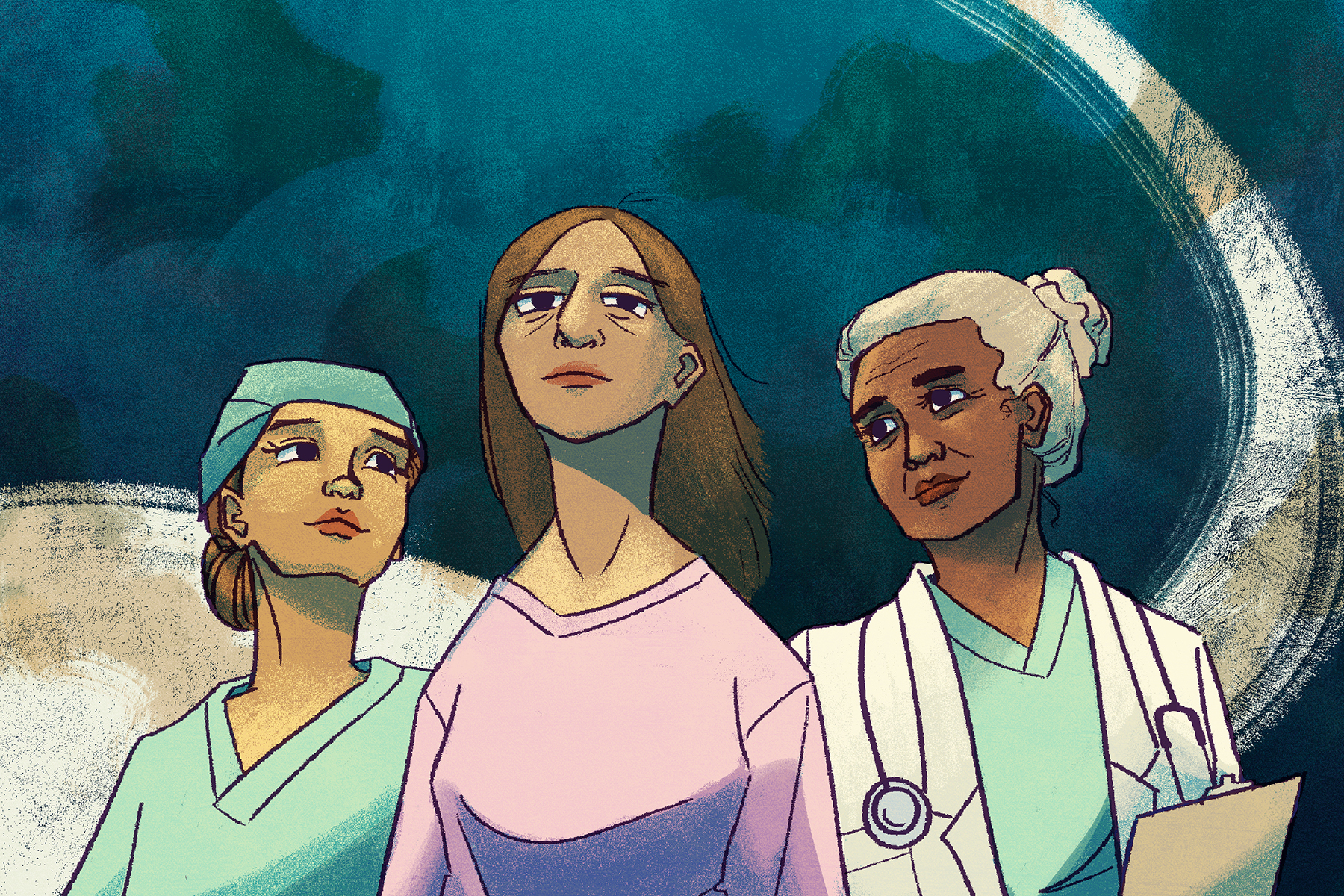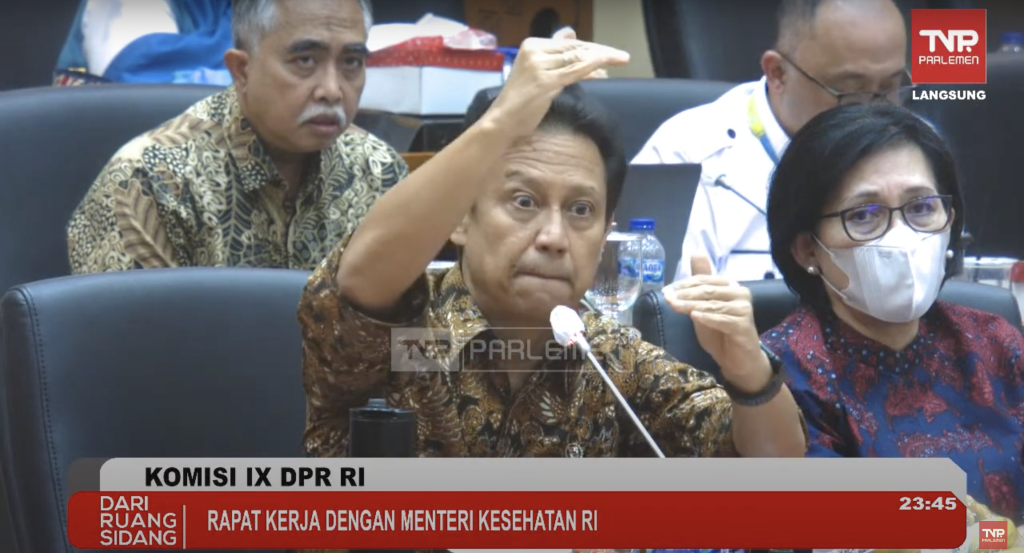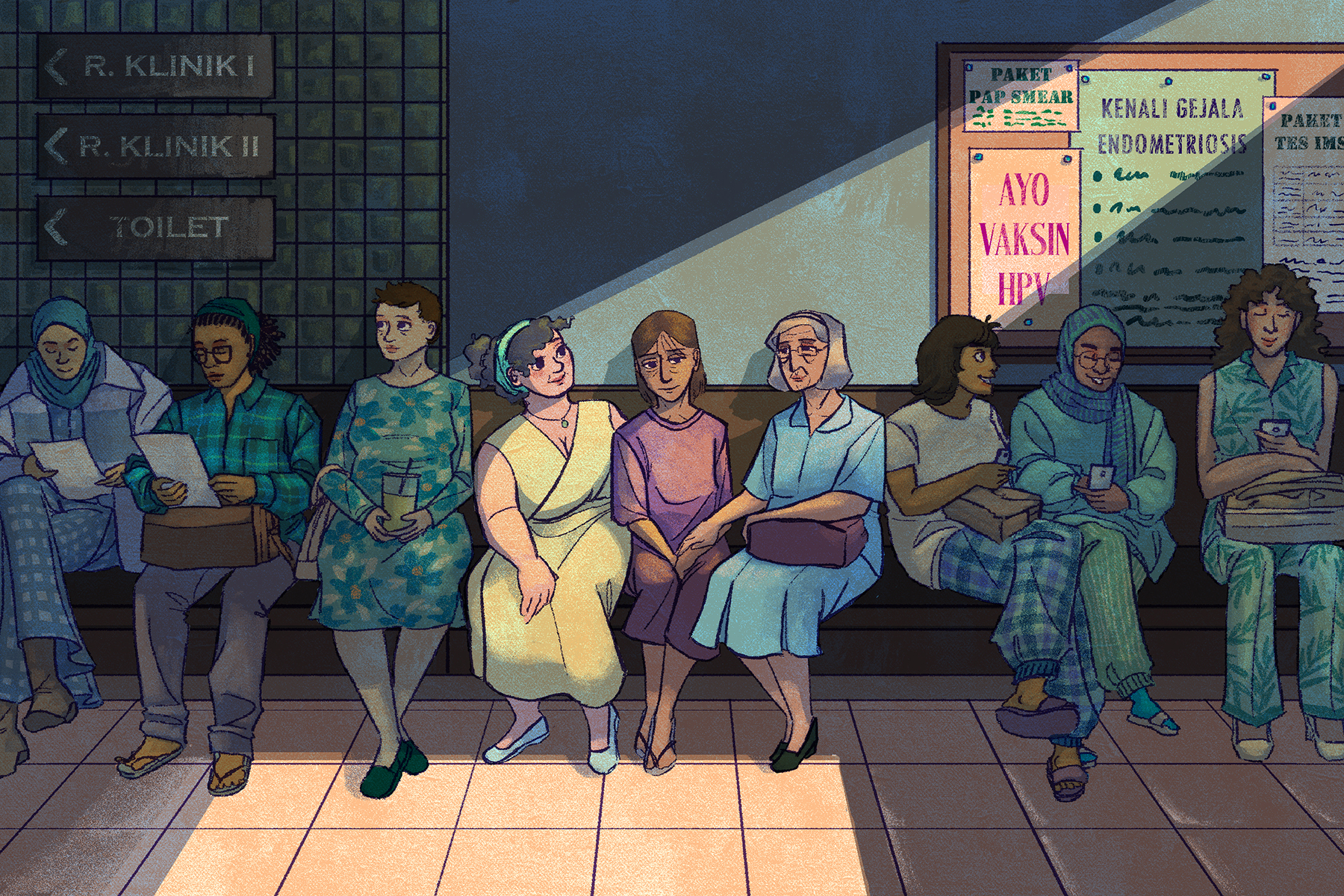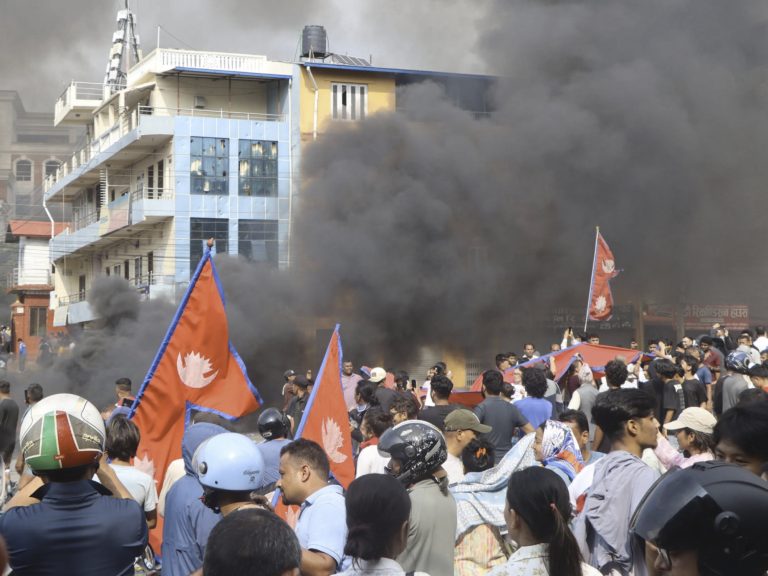Indonesia recently extended the legal window for an abortion from six weeks of pregnancy to 14 weeks, a change welcomed by professionals working with rape victims but met with strong opposition from doctors’ association, demonstrating the ongoing challenges in ensuring that victims of sexual violence have access to safe and legal abortion.
MURDER. That is what a representative of the Indonesian Medical Association (IDI) and Indonesian Society of Obstetrics and Gynecology (POGI) called expanding the window for legal abortion services for victims of sexual assault to 14 weeks of pregnancy.
Abortion is mostly illegal in Indonesia. The few exceptions include when the life of the mother is at risk and when the pregnancy is the result of rape. In such cases, the country’s 2009 Health Law permits abortion within six weeks of the mother’s last period, which is used as a matter of convenience to define the legal gestational age of the fetus, and allows that window to be extended in the case of a “medical emergency”.
Recent revisions to the Health Law and Criminal Code, however, have extended that cut-off to a gestational age of 14 weeks, but not without strong opposition from the country’s largest medical associations.
The representative of two most powerful medical associations was Ilyas Angsar. He made his statement at a May 2023 forum discussing the extension, which at the time was under deliberation in the House of Representatives. The revisions were passed into law on July 11.
He maintained his position even when considering the case of Melati, a 12-year-old girl who was raped in 2021. According to her counselor, Melati had tried to access the legal abortion services that she was eligible for under the 2009 law. However, bureaucratic red tape and the lack of a victim-centered perspective meant that she could not access abortion services before the six-week cut-off and was legally obligated to carry the pregnancy to term.
“This is so contradictory,” said Ilyas, who previously headed an IVF clinic. “There are people who have difficulty having children, and yet others are throwing their children away.”
Ilyas then asked the discussion participants, which included women’s rights activists, to watch The Silent Scream, an controversial anti-abortion film released in 1984 that shows an abortion through ultrasonography. The film was widely criticized by the American medical community for being “misleading and unfair”, and for using deceptive effects and editing techniques to make it seem like the fetus was “thrashing in alarm”.
Ilyas had made a similar suggestion at an event organized by the Indonesian Health Ministry to discuss the revisions to the Health Law.
“[See] how the fetus in the uterus is poked at, vacuumed. It cannot escape and has to accept its death with resignation,” Ilyas said.
“Maybe those who are pro-choice need to see that video,” he continued. “Is there even an OBGYN [obstetrician-gynecologist] who is willing to perform an abortion up to 14 weeks?”
At the same event, obstetrician Rajuddin of Syiah Kuala University in Aceh asked, “What is the basis for allowing [abortions] up to 14 weeks?” He suggested that if it took that long for a woman to realize she was pregnant, she had not been raped but had been “enjoying sexual relations”.
The IDI and POGI had insistently called for the abortion cut-off to be held at six weeks. Their objections were based on religious grounds rather than medical ones. Ilyas referred to a fatwa issued by the Indonesian Ulema Council (MUI) in 2005 that declared that abortions were only permissible within 40 days of conception, at which point, according to Islamic belief, the fetus gains a soul.
“Those of us who are Muslim will, of course, follow the MUI fatwa. If we do not follow the ulema, then what will we become?” Ilyas said.
More than 5,000 doctors were registered under POGI as of last year, and 65.7 percent were men. The organization is led by a male doctor, Budi Wiweko, and the organization has 11 men and one woman in its leadership. The four leaders of POGI’s advisory board are also all men.
In May 2023, the IDI held a forum titled “The Abortion Controversy in the Omnibus Health Bill.” At the forum, POGI representatives Budi and Nurhadi Rahman said their opposition to the cut-off extension stemmed from their dedication to the Doctor’s Oath, which was set down in a 1960 government regulation.
The oath was adapted from the World Medical Association’s 1948 Declaration of Geneva, which has been amended six times, the latest in 2017. The Indonesian version has never been amended.
The Indonesian Doctor’s Oath
By God, I swear I will maintain the utmost respect for human life, from the time of its conception.
***
| The Indonesian Doctor’s Oath | Declaration of Geneva |
| Adopted in 1960, based on the 1948 Declaration of Geneva. Never revised. | Most recently revised in 2017. |
| By God, I swear I will maintain the utmost respect for human life, from the time of its conception. | I will respect the autonomy and dignity of my patient*;
I will maintain the utmost respect for human life**; |
| * This phrase is not included in the Indonesian Doctor’s Oath.
** The phrase “from the time of its conception” was removed in later versions of the declaration, while the language remains in the Indonesian Doctor’s Oath. |
|
***
A 12-Year Old Rape Victim
In 2021, a grade-schooler who will be referred to as Melati for the purposes of this report was raped by a middle-aged man. She had only had three menstrual periods.
When her family sought help from the Women’s Crisis Center (WCC) in finding an abortion provider in Jombang, East Java, Melati was already four weeks pregnant. They had previously asked for assistance from the local police station but were rebuffed.
“Don’t abort the fetus,” the police had said, according to the family’s account. “It’s a sin.”
The Jombang WCC tried to assist Melati in accessing the health services she was eligible for. However, the medical facilities where Melati lived were not sympathetic to victims of sexual assault. Her family, with the help of a WCC counselor, went from one community health center to the next to get the referrals needed to obtain a legal abortion at a more advanced facility. But none of the health centers dared to give a referral for an abortion.
In an effort to expedite the process, the Jombang WCC brought a number of representatives of state agencies together to consider the case. The consultation was led by the Jombang Women’s Empowerment Agency and included the Jombang Social Services Agency, the Jombang Police, the Jombang hospital, and Melati’s legal team. But none of the agencies were interested in helping Melati obtain a legal abortion.
The Social Services Agency said children had to be protected from “age zero”. Its representative also questioned whether Melati could rightly be considered a rape victim under the 2009 Health Law because the Child Protection Law made no mention of the word “rape”.
The Jombang Hospital urged the family to have Melati carry the pregnancy to term, saying, “The baby will grow into a healthy child.”
One agency head said they supported the Jombang WCC’s effort to help Melati access legal abortion services, but they asked for the agency to be kept out of it.
“As an institution, we cannot [support accessing abortion],” the agency head said, according to the WCC’s account.
Each agency tried to pass the buck to another. They questioned whether Melati had really been raped. Maybe the 12-year-old had had consensual sex? They also claimed an abortion would lead to public unrest.
“Jombang is a city of santri [Islamic boarding school students],” one agency said. “If one victim is given access to abortion, then many other victims will also ask for abortions.”
In the end, the representatives concluded that abortion services could only be provided if the police provided a recommendation. But the Jombang Police claimed they did not have enough experience on the matter to offer such a recommendation.
The head of the Jombang Police’s criminal investigation division also warned that the WCC counselors could face criminal charges for trying to help Melati get an abortion.
When Melati finally obtained a referral to Dr. Soetomo Public Hospital in Surabaya, the only public hospital in East Java that had the necessary facilities, the hospital refused to provide abortion services.
They said that the fetus was healthy and that Melati’s “plump” frame proved it.
By that point, Melati was more than six weeks pregnant.
Patients Who Are Victims of Sexual Violence
At her private clinic in Jakarta, Belas, a midwife with nearly two decades of experience who asked to use a pseudonym for this report, said she had often come across patients with unwanted pregnancies as a result of sexual assault, so often, in fact, that she decided to open a shelter for people such situations.
Belas said she had never encountered a patient who was a victim of sexual violence who was less than six weeks pregnant. Most were four to five months pregnant by the time she saw them. The earliest she could remember was 12 weeks.
Some patients have asked Belas to perform abortions. However, with the threat of criminal charges for providing an abortion outside the legal limits, Belas has been unable to help them. This has presented an inner struggle for the midwife. She knows that women who do not want their pregnancy will seek abortions elsewhere, and her refusal to perform the procedure could put them at risk of getting an unsafe abortion.
“There was even a friend of mine who said, ‘I’ll look for [an abortion somewhere else]. If something happens to me, don’t regret it.'”
Withholding treatment from those who needed it was painful, Belas said, “because it means I have denied them [medical service]. I have done something that is unethical according to the oath of my profession.”
Belas has met many women seeking medical services because they do not have full control over their own bodies. A woman who became pregnant because her partner did not allow her to use contraception. A woman who used contraception clandestinely and in fear because her husband prohibited her from doing so. A domestic worker who was raped by her employer and then forced out by the employer’s wife. A woman who handed her babies over to other family members after giving birth. A married woman who experienced unwanted pregnancy several times
Before the pandemic, Belas encountered a patient in junior high school who had been raped by her boyfriend in her hometown. The girl came to Jakarta to see her mother, who was working in the city, and asked Belas for help and stayed temporarily at her halfway house. Being about 7 months pregnant at the time, was obligated to carry the pregnancy to term.
The girl and her mother almost abandoned the baby, who was born at Belas’ clinic, but in the end, they decided against it and took the baby with them back to their hometown.
“But it wasn’t a happy ending,” Belas said. “Because the girl [victim] experienced many [bad] things. Her child also experiences many things and has been called ‘illegitimate’.”
One patient abandoned her baby after giving birth at Belas’ clinic.
“The baby was left neatly on the bed,” said Belas. Belas asked the local social services agency for help in caring for the baby, but the agency declined.
“They didn’t want to accept [the baby]. There was no budget for it, they said.”

***
Abortion was first regulated as a criminal offense in Indonesia’s Criminal Code and was later carried over to the 2009 Health Law with certain exceptions added in, including the policy for rape victims.
But Belas said that instead of making abortion accessible to victims of sexual violence, the Health Law had actually strengthened the stigmatization of abortion among health and medical workers. She said the lack of clarity in derivative regulations and the threat of criminal charges had caused health facilities to create their own abortion policies, not in the interest of treating patients but to protect themselves from legal trouble.
Rape victims were constantly being doubted, Belas said. They were often asked, “Were you really raped?”
In 2014, the government issued derivative regulations to better define the Health Law’s policies on reproductive health.
The chair of the IDI at the time, Zaenal Abidin, again opposed the regulations. He said he considered abortion for rape victims to be contrary to the Doctor’s Oath and the medical code of ethics.
“Don’t ask us [to perform abortions]. Don’t cause inner conflict in the conscience of a doctor,” Zaenal said at the time.
The regulations stated that healthcare providers performing abortions in cases of medical emergency had to have received training from accredited instructors. Further regulations in 2016 required training for health workers who provided abortions for rape victims. The regulations stated that abortions could only be performed at health facilities designated by the Health Ministry and that professional organizations were required to help develop curricula and provide training for abortion services.
The Health Ministry has yet to clearly designate any health facilities that are permitted to provide abortions for victims of sexual violence.
Marcia Soumokil, a general practitioner and the director of the IPAS Indonesia Foundation, which was founded to help women obtain access to safe abortions, highlighted that the current rules made it more difficult to provide such services in the field.
“Of all the health services in Indonesia, there is not a single one that must be directly appointed by the ministry, because now we have regional autonomy. But safe abortion services must be specifically designated by the ministry,” said Marcia.
***
Not a Complicated Procedure
Despite the controversy surrounding the issue, the Omnibus Health Law, which extended the cut-off for legal abortions to a gestational age of 14 weeks, was passed in July 2023.
The new window for abortion services was based on guidelines from the World Health Organization (WHO), which includes abortion as an essential health service.
The WHO’s 2022 Abortion Care Guideline recommends the use of vacuum aspiration abortion for gestation periods of less than 14 weeks. The method, particularly manual vacuum aspiration (AVM), is recommended because it is safer, faster, simpler, and cheaper than the sharp curettage method.
AVM can be used in health facilities with limited resources because it does not require electricity or anesthesia and can be performed by a medical worker who is not a doctor.
Pregnancies of less than 12 weeks may, according to the WHO guidelines, be aborted with drugs such as mifepristone and misoprostol, which have been on the list of essential drugs since 2005.
Marcia Soumokil, general practitioner and director of the IPAS Indonesia Foundation, said, “Abortion can be done using simple surgical tools in a very standard health service system, it can even be done at the community health center in Puncak Jaya [Papua].”
“The condition is that the device can only be used for pregnancies of up to 14 weeks,” she added.
In Indonesia, the AVM method is recommended by the Health Ministry for post-miscarriage care, specifically when someone experiences an incomplete miscarriage or missed abortion. However, AVM is stigmatized as a method that is misused to perform abortions and is not standard procedure in most of the country’s health facilities.
If safe and legal procedures are followed, abortion services have a lower risk of death than giving birth. Research from 2012 found that the risk of complications or death from childbirth was 14 times higher than with safe abortion.
However, IDI made arguments to insist only on the risks.
“Clearly, there are risks for the mother: bleeding, infections, anesthesia,” an obstetrician, Ari Kusuma Januarto, the head of POGI’s advisory board said.
Ika Ayu, the director of Samsara, an organization focusing on the rights to information on sexual and reproductive health, said the barriers for victims to access safe abortion came from the medical workers. Ika said this was a pattern that happened globally. Usually the stigmatizing began with an emphasis on negative consequences of abortions, despite the existence of safe methods.
Ika said those who accessed legal, safe abortion underwent counseling and had time to make a decision after seeing things clearly. They got access to the recommended, safe method but the ongoing stigma on abortion dismissed such experience.
***
Jakarta’s Dr. Cipto Mangunkusumo National Central Public Hospital (RSCM) is Indonesia’s oldest teaching hospital. It is also a national referral hospital, meaning that smaller public hospitals and health facilities will refer patients they do not have the capacity to treat to RSCM.
Among these referrals, RSCM often receives patients who are victims of sexual violence and are seeking abortions.
RSCM’s chief obstetrician, Seno Adjie, said abortions were not difficult to perform from a technical standpoint.
“Sometimes I think to myself, why do [smaller health facilities] have to refer [the patient to RSCM] when it’s only an abortion? But the issue is that they don’t want to make the decision. They don’t want to create a problem at their hospital from a legal or ethical perspective. So they refer the patient to RSCM,” said Seno.
For patients who are suspected of being victims of sexual violence, RSCM has an ethics committee that will decide whether the patient is eligible for abortion. They will ask for the victim’s report to the police and the results of the rape kit. They will also check the patient’s medical condition to ensure the abortion can be performed safely.
If the requirements are met, the RSCM team will immediately take action. Seno said the process usually took less than a week, as the team was mindful that there was a ticking clock for rape victims who wanted to access legal abortion.
The RSCM team does not record the number of victims of sexual of violence who get an abortion at the hospital. However, Seno said that every year there were cases. “And more than one,” he said.
Patients come from various regions, from Depok, just outside Jakarta, to Padang, some 1000 km away in West Sumatra. Some patients have been rape victims with mental disabilities.
The abortion ethics committee also considers indications of medical emergencies when examining cases of victims of sexual violence with unwanted pregnancies.
For example, the RSCM team once had a 10-year old patient who had been raped by a neighbor. By the time the girl was referred to RSCM, she was already 8 weeks pregnant, past the legal abortion cut-off for rape victims at the time.
The team called in a child psychologist, who concluded that the girl would experience serious psychological harm if she was forced to continue the pregnancy.
“So it was decided that this was a medical emergency. Because of that, it was possible [to perform an abortion] even though [the pregnancy] was older than 6 weeks,” Seno said.
One rape victim came to the hospital 27 weeks pregnant. In despair about her pregnancy, she had repeatedly attempted suicide. “We concluded that there was a medical emergency because she wanted to commit suicide. [So we performed an] abortion.”
Seno could not confirm whether the Health Ministry had designated RSCM an official abortion provider. But he was certain that RSCM was in full compliance with prevailing regulations.
“If the victim requests it and [the case] meets the legal requirements, as a hospital that complies with the law and serves the community, we can [perform an abortion],” said Seno.
He acknowledged that there was debate about the safety of the 14-week gestational age limit among professional organizations. However, he believed that abortion in the longer window remained safe as long as it was carried out by competent health professionals with adequate infrastructure. “At RSCM, [abortions are] safe.”
Seno did not say whether he personally agreed or disagreed with abortion, but he emphasized the need to provide access to safe abortions. “If we want to have safe abortions, there must be an expansion of regulations. Otherwise, there will be many unsafe abortions.”
***
Stigma Leads to Unsafe Abortion
Given the barriers to accessing legal abortion, many patients do not seek help at medical facilities and rather try to find other ways to terminate the pregnancy.
Research conducted by the Guttmacher Institute and the University of Indonesia in 2018 estimated that 43 out of 1,000 women aged 15-49 years in Indonesia had had an abortion. Of those women, almost a third had done it themselves and a few others had gone to traditional healers or pharmacists. Most of them consumed traditional herbal medicine or got traditional massages to terminate the pregnancy.
In her eight years of practice as a general practitioner, Sandra Suryadana said, she had never had a patient openly ask for access to abortion services in person.
However, she had received some requests while providing telemedicine services. “Maybe because they don’t dare [to ask in person],” said Sandra.
In early 2019, Sandra initiated the social media account Doctors Without Stigma (Instagram: @doktertanpastigma). Through this platform, Sandra and her colleagues often hear from the followers about bad experiences seeking health services.
Women complained about misogynistic OBGYNs, who would give lectures on their personal behavior and humiliate them.
Many of these complaints match Belas’s previous experience working at a hospital. She encountered coworkers who were reluctant to provide access to contraception to patients. If the patient was a widow, for example, they would ask intrusive questions. “Why do you need contraception? What for?” Belas said, mimicking her colleagues. Some of her co-workers would also question the experiences of patients who were victims of sexual violence. “Did you enjoy it?”
Belas once conducted a study on the views of health workers – midwives, general practitioners, specialists and others – regarding rape victims and access to abortion services.
“There are those who see [pregnancy resulting from rape] as a manifestation of past sins, that it’s their destiny. Whatever happens, the pregnancy must continue,” she said. “Women have to almost die before they can get services.”
Seno, the RSCM obstetrician, also often encounters fellow doctors who refuse to provide emergency contraception to patients.
Emergency contraception is a pregnancy prevention drug that a person can take three to five days after having unprotected sex. Health workers who refuse to provide emergency contraception compare the drug to abortion.
“My personal opinion is that all women have the right to reproductive protection,” said Seno. “If an OBGYN tells me that they don’t want to provide [emergency contraception] because of some moral principle or religious belief, then that’s okay. But they must understand that the patient has a right to it. They cannot obstruct that right. They must provide access [by referring the patient] to another doctor.”
***
Wherever she has practiced, whether at community health centers, company clinics, regional hospitals, private hospitals or even beauty clinics, Sandra has met women who are victims of violence.
“And that’s just me. My friends who work elsewhere must definitely come across some too, right? How come I’ve never heard anyone talk about this? Why are we all just putting a band-aid on the bullet hole?” she said.
Sandra was not taught the concept of people-centered care in her official medical training. The health facilities where Sandra worked previously also did not have standard operating procedures for offering treatment sensitive to the needs of different genders.
Likewise, Belas developed a people-centered perspective of care when she studied outside of formal midwife education.
“[The focus of formal education] is intense training, to make sure that we are competent, but we forget that health service providers need to be humane,” said Belas.
As a midwife, Belas said she was more comfortable working at her clinic, which once belonged to her now-retired mother, than in the hospital because in the clinic, she feels like she has authority.
When Belas worked at a hospital, she and other non-physicians were subject to domineering and condescending behavior from doctors, she said. Getting berated by a doctor was a daily occurrence. One doctor even slapped her hand when she handed them the wrong tool.
This undermining of non-physician practitioners, particularly midwives, results in severe limitations in access to essential health services, including safe abortions.
For safe abortions under 14 weeks of gestational age using surgical methods, the WHO recommends that not only general practitioners and specialist doctors be authorized to carry it out, but also midwives, nurses and traditional or complementary health workers.
The WHO says the task is among the main competencies of midwives. Also, female patients often report feeling they received more supportive service at the hands of midwives than with other medical professionals. In areas with limited access to doctors, whether through infrastructure and resources, midwives and nurses are crucial in expanding access to abortion services.
However, in Indonesia, abortions are predominantly carried out by OBGYNs, and these doctors are mostly male. According to the POGI website, among the 5,270 OBGYNs registered in 2023, 65.7 percent were male.
“Now, we can see the power dynamic. When it comes to women’s affairs, maternal health, abortion – that requires approval from an OBGYN. If they all refuse, then what?” Belas said.
In a House of Representatives hearing on revisions to Health Law in January 2023, Health Minister Budi Gunadi Sadikin echoed these concerns.
He said he had received complaints from midwives and nurses.

“In foreign countries, nurses and doctors are seen as equals. One team. Here, there is a caste difference,” he said, gesturing to indicate the difference in status. “In other countries, doctors really value and respect nurses. Not here. Nurses are seen as lackeys.”
This status difference matters so much to doctors’ organizations that in 2014, a number of them, including the IDI, petitioned the Constitutional Court to amend a law on health workers to have “medical personnel”, that is doctors, classified differently from other “health personnel”, which included nurses and midwives.
It is not only non-physician practitioners who fall victim to this hierarchical, seniority-based culture. Doctors, particularly younger and more junior ones, are often browbeaten by their fellow doctors.
In August 2023, the Health Ministry reprimanded three hospitals for allowing the bullying of doctors taking part in medical residency programs.
IDI representatives called the ministry’s actions “excessive”, arguing that the supposed bullying made for more disciplined doctors.
This culture of fear extends to the provision of abortion services. One doctor said it was not just the threat of criminal prosecution that made some doctors hesitate to perform abortions for rape victims; they also feared what might happen to their careers if they ran afoul of doctors’ organizations.
Before the new health law was passed, the IDI was responsible for all practice permits issued to doctors. Regional governments had the authority to issue practice permits, but only based on recommendations from the IDI. To get a letter of recommendation, doctors had to register as an IDI member.
In 2022, PPH Unika Atma Jaya and the Indonesian Reproductive Health Knowledge Hub released a report entitled Analysis of the Abortion Situation in Indonesia. The report states that health workers who provide abortion information and services are often threatened with career ruin.
One of the people interviewed for the study said one doctor “told me that yesterday a doctor at [a certain hospital] had been fired for performing” an abortion.
Despite the adoption of the new health law, many health workers and counselors for victims of sexual violence say the healthcare system is still not doing well.
“Why do we persist with a system that is no longer good?” asked a doctor.
***
The Need for Victim-Centered Services
Providing access to abortion services for victims of sexual violence is closely related to the swift and integrated handling of those victims’ cases. Given the cut-off time for legal abortion, sexual violence cases must be dealt with rapidly by both law enforcement and health officials.
According to the 2022 Sexual Violence Law, victims have the right to receive health services in the form of physical and mental examinations, treatment of injuries, prevention and treatment of sexually transmitted diseases, prevention and treatment of pregnancy, psychiatric and psychological therapy, as well as psychosocial rehabilitation.
However, in the field, these policies remain poorly implemented.
Since the passage of the law, which calls for the government to take over counseling services for victims of sexual violence, access to such counseling has become more limited.
Ana Abdillah of the Jombang WCC has felt the change firsthand. She cited the case of a domestic violence victim.
“Her husband cut off her hair, beat her until she bled,” Ana said.
The incident occurred on a public holiday, so when the victim looked to the local women’s protection unit for help, they said they could not do anything because it was outside the agency’s opening hours.
“This shows that we are dealing with a system where perspective, empathy and responsiveness are not priorities,” Ana said.

According to Margaretha Hanita, victim-centered care required not only that victims could access health services but that such services were actively engaged in reaching victims.
Hanita is a lecturer, practitioner and activist in the field of women’s resilience who has worked at an Integrated Care Center for the Empowerment of Women and Children (P2TP2A) for 15 years. She is now assisting the Jakarta police and a number of Jakarta hospitals in providing people-centered care.
Over her 15 years of experience, Hanita witnessed how victims of sexual violence had to wade through red tape to get the care they needed. For example, victims’ health costs are typically not covered by the National Health Insurance program, which only covers official “diseases”.
“But a rape kit is not a disease. Injuries resulting from sexual violence are not diseases. Injuries [like] broken noses, being doused with acid, those are not diseases,” said Hanita.
Hanita has also worked with child victims of sexual violence who were denied care because they did not have a national ID card number (NIK), which are only provided to citizens 17 years old or above.
Local governments also require victims to be registered at the local civil registry office before they can receive financial assistance.
“You have to become a resident of DKI Jakarta first. You have to have your biometrics [registered] first,” said Hanita.
Integrated services for victims of sexual violence also involve cross-sector coordination, which adds another level of complexity. The Bekasi Regency Regional Hospital (RSUD Bekasi), which plans to open an integrated service center, must invite at least the police, the local women’s empowerment agency and social services to offer integrated services for patients who are victims of sexual violence.
“It takes a high level of commitment to make an integrated service center. We have to involve many parties across sectors,” said Ida Hariyanti, head of the hospital’s medical and diagnostic services division.
Generally, patients who are victims of sexual violence are required to have a letter from the police requesting a rape kit before they can be examined for rape.
However, RSUD Bekasi allows patients who have not reported their assault to the police to come to the hospital first.
“We handle the emergency first, complete the examination. If necessary, we contact the police,” explained Suryo, a forensic doctor at the hospital.
RSUD Bekasi is one of only a handful of health facilities that has prepared a special pathway for treating victims of sexual violence. The fact that most other hospitals and government agencies have not yet adopted this approach means that victims of sexual violence are often blocked from getting an abortion before the legal cut-off.
“Never mind victims who need access to a safe abortion; even victims who need access to a safe house are still told to wait,” said Ana.
***
Closing
Melati, the child rape victim in Jombang, was never able to access a legal abortion. Her child was adopted by someone else immediately after she gave birth.
During her pregnancy, Melati’s family did not receive any healthcare support from the government.
“[Government help] was limited to basic foodstuffs,” said Ana of WCC Jombang. Even Melati’s prenatal check-ups were covered by the family and personal donations from others.
Melati and her parents experienced deep trauma as a result of the pregnancy. The Jombang WCC once accompanied Melati’s parents to buy clothes for the baby. When they got to the store, they didn’t want to hold the clothing.
“They were reluctant to even go into the store,” said Ana.
None of the victims that the Jombang WCC has assisted has been able to access legal abortion services.
Research by a center at Catholic University Atma Jaya and the Indonesian Reproductive Health Knowledge Hub found that there were a total of 160 criminal verdicts related to abortion cases in the country from 2017 to 2021. As many as 45 women who sought access to abortion services were charged with crimes.
A number of cases were prosecuted under the Child Protection Law, which contains an article that reads: “Everyone is prohibited from carrying out abortions on children who are still in the womb […].”
Ana said the problem was the systemic lack of sensitivity of the healthcare system to the needs of victims of sexual violence.
“There are many loopholes in the legal structure that have no perspective on victims. In the future, our Health Law must be more humane,” she added.
In principle, regulations in the Criminal Code and the Health Law provide opportunities for women victims of sexual violence to access abortion services. However, the law still requires derivative regulations to ensure the availability of abortions. These regulations are still in the process of being drafted.
Project Multatuli sent a letter on Aug. 8, 2023, requesting an interview with the Health Ministry’s director general of public health. We also sent one to the head of the communications and public services bureau of the Health ministry, Siti Nadia Tarmizi. As of the publication of this article, the requests had received no response.
“When the law says that victims of sexual violence who experience unwanted pregnancies can access those services, they should be able to access those services,” Marcia said, “Let’s give them the rights that are governed by law.”
Translator: Karina M. Tehusijarana
Project Multatuli collaborated with Konde.co and Koran Tempo for this article and got support from IPAS Indonesia Foundation.









